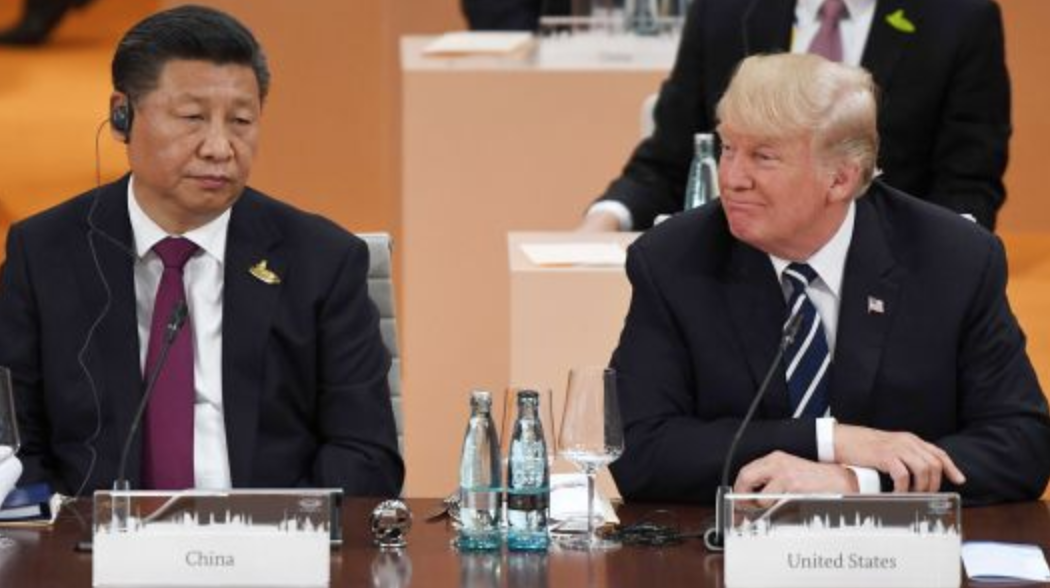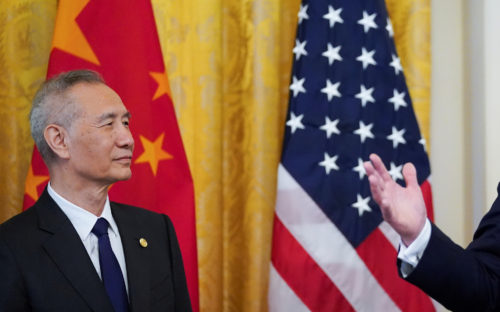Trade war, day 28: China to Trump: ‘Calm down.’


On day 27 of the U.S.-China trade war, we covered blowback — the Chinese foreign ministry accused the U.S. of “blackmail” — to the White House’s reported desire to ratchet up the tariff level on $200 billion of Chinese goods from 10 percent to 25 percent. Or as Quartz puts it, “Donald Trump’s China tariffs are failing, so the White House is proposing even more tariffs.”
Today, China further rebuked the U.S. approach, and the confrontation looks to only be escalating:
- “We hope that those directly involved in the United States’ trade policies can calm down, carefully listen to the voices of U.S. consumers…and hear the collective call of the international community,” Foreign Minister Wang Yi said, Reuters reports.
- The U.S. is indeed impatient for an immediate solution, according to Jacob Parker, the vice president for China operations for the U.S.-China Business Council in Beijing. But if the Trump administration is listening to American companies that do business in China, it will hear a different story than if it listens to U.S. consumers or the “collective call of the international community.”
- “When we talk to the U.S. government, they indicate that there needs to be specific, immediate, measurable action,” Parker told Bloomberg (paywall) in an interview covering multiple facets of the trade confrontation. “This can’t be a promise for some future liberalization. Both the business community and the U.S. government are just suffering from this promise fatigue from China.”
- “Promise fatigue” is a phrase commonly used by both American and European businesses when describing trade negotiations with China.
- Trump is not going to “calm down”: The New York Times says (paywall) that his hard-line advisers in the White House, as well as his former chief strategist and ultranationalist Steve Bannon, have been advising him to inflict “painful measures” on China to “force it back to the negotiating table on trade.”
- Trump has also “privately told advisers this week that he was intent on staying the course to punish China with additional tariffs,” and the argument of Treasury Secretary Mnuchin, that negotiations should come before more tariffs, was “weakened by a recent and rapid depreciation in China’s currency.”
- Also today, the “US Department of Commerce added 44 Chinese entities to its export control list on Wednesday for posing a ‘significant risk’ to US national security or foreign policy interests,” the South China Morning Post says, in a move targeting China’s Made in China 2025 industries.
Other trade war reporting:
- Stocks fall as trade tensions cause jitters / NYT (paywall)
“China’s main stock index dropped 2 percent, and in Hong Kong, an index of China’s biggest listed companies, ended down slightly more than that.” - Trump’s tariffs on Chinese caviar may stop a quiet takeover of the world’s gourmet kitchens / SCMP
“This year alone, China shipped more caviar to the US than the rest of the world combined, according to the latest government data.” - Chinese merchants fear Trump’s trade war is hurting a popular snack: Pig feet / Washington Post
“China bought 309,000 tons of pork last year from farmers throughout the Midwest and the South, and a lot of the shipments carried parts that many Americans don’t normally eat: heads, tails, guts and feet.” - EU reaps healthy yield from US-China soybean spat / Deutsche Welle
“European Commission figures released this week showed that 37 percent of the EU’s soybean imports in June came from the US, compared with 9 percent in July 2017.” - Trump’s tariffs push electronics from China to Southeast Asia / Bloomberg via Straits Times
“Electronics-makers are preparing to shift more production to Southeast Asia as trade tensions with the US make it less appealing to manufacture gadgets in China. A number of Taiwanese firms that form a crucial plank of the global supply chain have in recent days signaled their intention to diversify away from the world’s No. 2 economy.”
Previously in The China Project’s trade war coverage:






